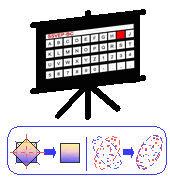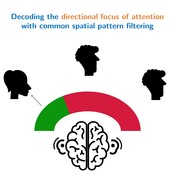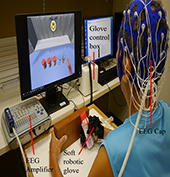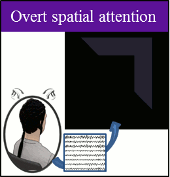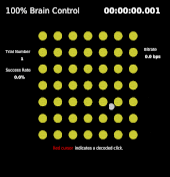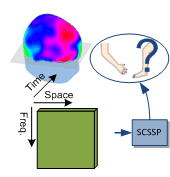Align and Pool for EEG Headset Domain Adaptation (ALPHA) to Facilitate Dry Electrode Based SSVEP-BCI
Fast EEG-based decoding of the directional focus of auditory attention using common spatial patterns
Brain-computer interfacing (BCI) is a promising method for providing alternative connections between the brain and the outside world in concert with natural connections or re-establishing natural limb movement in cases…
read moreObjective: We propose a novel calibration strategy to facilitate the decoding of covert somatosensory attention by exploring the oscillatory dynamics induced by tactile sensation. Methods: It was hypothesized that the…
read moreBrain-computer interfaces (BCIs) aim to help people with paralysis to improve their communication and independence. Intracortical BCIs (iBCIs) have shown promising results in pilot clinical trials. Despite the performance improvements…
read moreCommunication neural prostheses aim to restore efficient communication to people with paralysis and ALS. These systems record neural signals from the brain and translate them, through a decoder algorithm, into…
read moreBradley J. Edelman, Bryan Baxter, Bin He, University of Minnesota, USA Brain-computer interfaces (BCIs) based on sensorimotor rhythms (SMRs) have achieved successful control of real and virtual devices in up to…
read moreAmirhossein S. Aghaei, Mohammad Shahin Mahanta, Konstantinos N. Plataniotis, University of Toronto Brain-Computer Interface (BCI) systems aim to provide a non-muscular channel for the brain to control external devices using electrical…
read more
